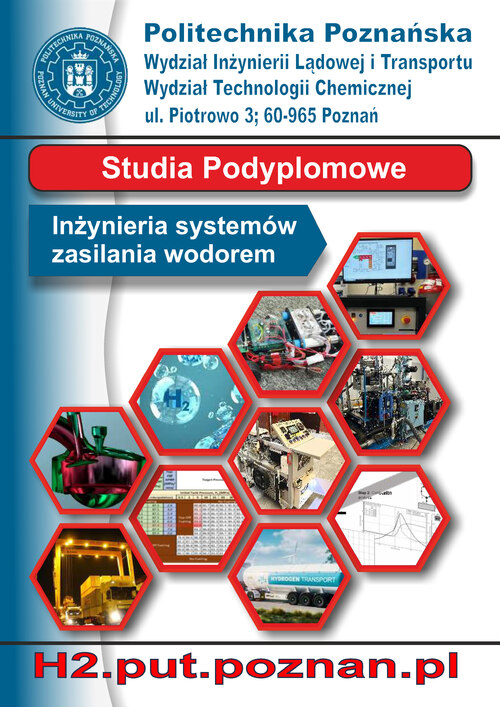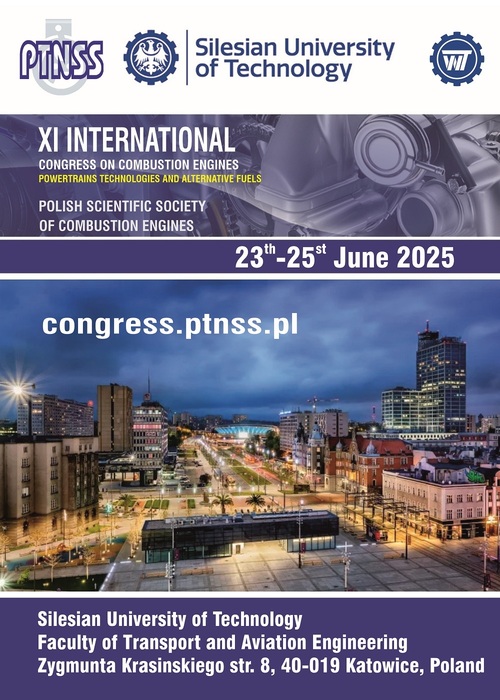Current issue
Online first
Archive
About the Journal
Aims and scope
Publisher and Editorial
Advertising policy
For Authors
Paper review procedures
Procedures protecting authentic authorship of papers
Paper preparation manual
Plagiarism check
Publication ethics
Reviewers
APC
Editorial and Scientific Board
Contact
Reviewers
Publication ethics
PUBLICATION ETHICS of "Combustion Engines" scientific journal
The Editorial Board of the "Combustion Engines" journal takes care of the high quality of published materials and takes action against neglect of publication standards. All parties involved in the publication process: the author, the editor, the reviewer and the publisher are required to adhere to ethical standards in scientific publications.
The following principles are based on the recommendations of the COPE (Committee on Publication Ethics) contained in the Code of Conduct and Best Practice Guidelines for Journal Editors and COPE Ethical Guidelines for Peer Reviewers.
Authorship and the Use of AI or AI-Assisted Technologies
Combustion Engines Editorial follows the Committee on Publication Ethics (COPE) position statement when it comes to the use of Artificial Intelligence (AI) and AI-assisted technology in manuscript preparation. Tools such as ChatGPT and other large language models (LLMs) do not meet authorship criteria and thus cannot be listed as authors on manuscripts.
In situations where AI or AI-assisted tools have been used in the preparation of a manuscript, this must be appropriately declared with sufficient details at submission via the cover letter. Furthermore, authors are required to be transparent about the use of these tools and disclose details of how the AI tool was used within the "materials/methods" section, in addition to providing the AI tool’s product details within the “Acknowledgments” section.
Authors are fully responsible for the originality, validity, and integrity of the content of their manuscript, including any material contributed by AI or AI-assisted tools, and must ensure, through carefully review, that this content complies with all Combustion Engines publication ethics policies. Combustion Engines Editorial reserves the right to request further information, and editorial decisions will be made in line with Editorial Process.
Code of Conduct and Best Practices for Authors
Code of Conduct and Best Practices for Editors
Code of Conduct and Best Practices for Reviewers
The Editorial Board of the "Combustion Engines" journal takes care of the high quality of published materials and takes action against neglect of publication standards. All parties involved in the publication process: the author, the editor, the reviewer and the publisher are required to adhere to ethical standards in scientific publications.
The following principles are based on the recommendations of the COPE (Committee on Publication Ethics) contained in the Code of Conduct and Best Practice Guidelines for Journal Editors and COPE Ethical Guidelines for Peer Reviewers.
Authorship and the Use of AI or AI-Assisted Technologies
Combustion Engines Editorial follows the Committee on Publication Ethics (COPE) position statement when it comes to the use of Artificial Intelligence (AI) and AI-assisted technology in manuscript preparation. Tools such as ChatGPT and other large language models (LLMs) do not meet authorship criteria and thus cannot be listed as authors on manuscripts.
In situations where AI or AI-assisted tools have been used in the preparation of a manuscript, this must be appropriately declared with sufficient details at submission via the cover letter. Furthermore, authors are required to be transparent about the use of these tools and disclose details of how the AI tool was used within the "materials/methods" section, in addition to providing the AI tool’s product details within the “Acknowledgments” section.
Authors are fully responsible for the originality, validity, and integrity of the content of their manuscript, including any material contributed by AI or AI-assisted tools, and must ensure, through carefully review, that this content complies with all Combustion Engines publication ethics policies. Combustion Engines Editorial reserves the right to request further information, and editorial decisions will be made in line with Editorial Process.
Code of Conduct and Best Practices for Authors
- Authorship of the article published in the journal “Combustion Engines” should be limited to those people who have made a significant contribution to the concept and implementation of research and the interpretation of the published research results. Before submitting an article to the editor, make sure that all authors have been indicated and approved the final version of the text. Authors are obliged to indicate the contribution of individual persons to the creation of the text.
- Duplicating publications, plagiarism, fabrication of data, false list of authors, ghost authorship, conflict of interest constitute a manifestation of scientific misconduct and violation of ethical standards. We deal with a false list of authors when the name of the researcher who made a significant contribution to the publication was not mentioned or was not included in the acknowledgments included in the publication. Ghost authorship occurs when a person's participation in the research is negligible or did not take place at all, and yet he/she was given as the author/co-author of the publication.
- The author should disclose all sources of funding for projects in his/her work, contributions from research institutions, associations and other entities, and any material conflicts of interest that may affect its results or interpretation. It is unethical to provide false or knowingly wrong information.
- The author of the article published in the journal “Combustion Engines” should not publish materials describing the same research in more than one journal or original publication (duplicate publication). Submitting the same work to more than one editorial office at the same time is unethical and is not allowed. It is also considered unethical to submit a scientific article that is a translation of the published text.
- If, after submitting the article in “Combustion Engines”, the author discovers an error or inaccuracy in the text, he/she is obliged to immediately notify the editors of this fact.
- Once an article has been published, the authors (or other interested parties) may ask the editors to revise, correct or retract it. Such a request should be properly justified.
- The author should ensure that the names of the authors cited in the work and/or excerpts from the works of the cited works are properly described.
- Plagiarism is treated as unethical and unacceptable behavior.
- Any violations of the above-mentioned ethical standards constitute grounds for rejection of the article from the journal “Combustion Engines”.
- The journal allows the authors to hold the copyright without restrictions as well as to retain publishing rights with no restrictions.
Code of Conduct and Best Practices for Editors
- The decision whether the submitted article will be published is made by the editor-in-chief. The decision to publish the article in the journal “Combustion Engines” is based on the reviews and opinions of the Scientific Board.
- In the process of deciding whether to accept or reject a given scientific text, it is important to be consistent with the thematic scope (profile) of the journal, not the author's origin, affiliation, nationality, ethnicity, political views, gender, race or religion.
- Editors do not disclose data about authors to reviewers or data about reviewers to authors.
- Information obtained in the process of evaluating the publication, as well as rejected articles or their fragments, may not be used in own research by Editorial Board members or reviewers without the express written consent of the author.
- The Editorial Board of the journal “Combustion Engines” does not appoint persons who are in direct reporting to the authors of the texts or in other direct personal relationships (conflict of interest/competing interests) as reviewers.
- The editor-in-chief is obliged to comply with the current legal status in the field of defamation, infringement of copyright and plagiarism.
- The receipt by the editors of information about violations of ethical standards by the author of the text, including any significant similarity, partial overlapping of the content of the reviewed work with any other published and known work, or about the suspicion of plagiarism, obliges the editor-in-chief to undertake actions aimed at verifying the merits of the allegations presented.
- In the event that the author of the text violates the ethical standards (regarding e.g. duplicate publication, plagiarism, fabrication of data, false list of authors, ghost authorship), the editor-in-chief is obliged to: (1) reject the text, (2) collect full documentation with evidence material, (3) inform the author about the outcome of the procedure and the Editorial Board's actions, (4) contact the author's institution and inform his/her superiors and/or other persons responsible for supervision over the research, (5) inform the reviewer about actions taken. Finding a violation after the publication of an article is the basis for removing this article from the content of the journal.
- Any complaints and appeals are arbitrated by the editor-in-chief. A person dissatisfied with the resolution of their case may appeal to the Scientific Board of the journal.
- A post publication debate can be conducted on the journal's Facebook page, interested parties can send their letters to the editors as well.
Code of Conduct and Best Practices for Reviewers
- A reviewer who is unable to review the manuscript at all or within the prescribed deadline should immediately inform the Editorial Board of the journal “Combustion Engines” about it.
- Reviews should be made objectively, in line with ethical standards, based on scientific arguments. Personal critique of the author is considered inappropriate.
- All reviewed papers are treated as confidential documents. They should not be shown to other people, they should not be discussed outside the Editorial Board. Nor can they be used for personal gain by the reviewer.
- All reviews of the papers in the journal “Combustion Engines” are anonymous. The editors do not share the authors' data with the reviewers.
- Reviewers should not review works in relation to which there is a suspicion of a conflict of interest/competing interests resulting from a relationship with the author, company or institution.
- The reviewer should inform the Editorial Board of the journal “Combustion Engines” about the breach of ethical standards by the author of the text, including any significant similarity, partial overlapping of the content of the reviewed work with any other published and known work, or about suspected plagiarism, ghost authorship or a false list of authors.
We process personal data collected when visiting the website. The function of obtaining information about users and their behavior is carried out by voluntarily entered information in forms and saving cookies in end devices. Data, including cookies, are used to provide services, improve the user experience and to analyze the traffic in accordance with the Privacy policy. Data are also collected and processed by Google Analytics tool (more).
You can change cookies settings in your browser. Restricted use of cookies in the browser configuration may affect some functionalities of the website.
You can change cookies settings in your browser. Restricted use of cookies in the browser configuration may affect some functionalities of the website.






